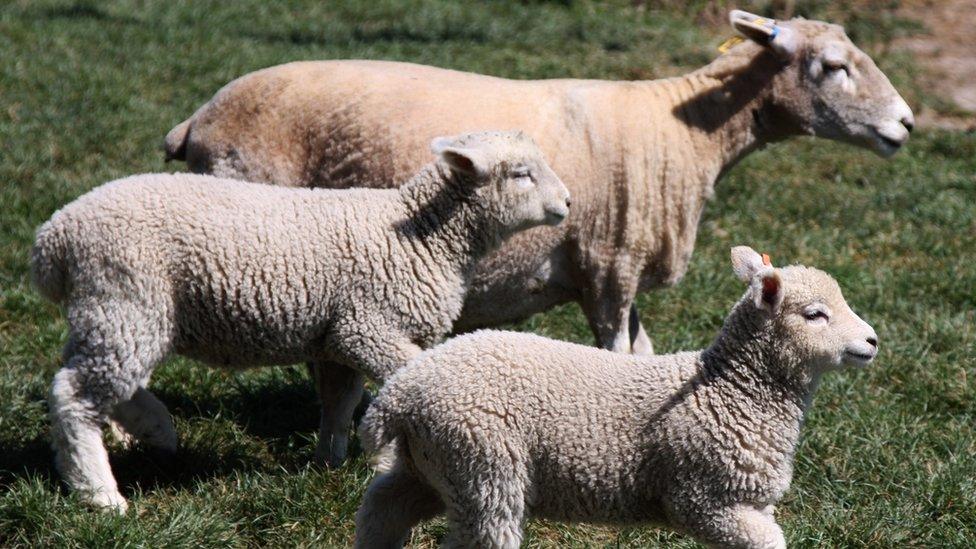University of Cambridge: Removing meat 'cut carbon emissions'
- Published
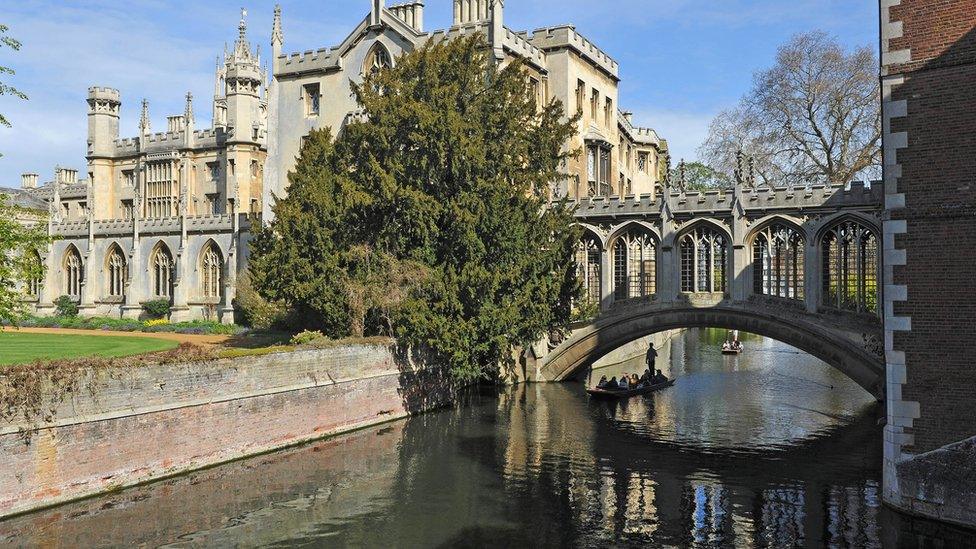
The University of Cambridge's catering service replaced beef and lamb with plant-based products
The University of Cambridge has said removing beef and lamb from its menus has cut food-related carbon emissions by a third.
The university's catering service replaced the meat with plant-based products for its 14 outlets and 1,500 annual events from October 2016.
Prof Andrew Balmford, from the university, said it had "dramatically reduced their environmental footprint".
But farmer Judith Jacobs said it was "short-sighted" and "denied choice".
The university measured its carbon footprint in a three-month period in 2015, before the changes, and the same period in 2018.
It said that overall carbon emissions across the catering service were reduced by 10.5%.
There was a 33% reduction in carbon emissions per kilogram of food purchased, and a 28% reduction in land use per kilogram of food purchased.
'The right choice'
Scientists have said beef and lamb produce most farm greenhouse gases and have argued the number of sheep and cattle in the UK should be reduced to help combat climate change.
Prof Balmford, professor of Conservation Science at the university, advised the catering service on the changes.
He said: "It is hard to imagine any other interventions that could yield such dramatic benefits in so short span of time."
However, Rachel Carrington from farm union NFU said it was "disappointing the university is taking this overly-simplistic approach".
The NFU have launched its own plan to become carbon neutral in two decades and Ms Carrington said the university should "source locally-produced beef and lamb".
Ms Jacobs, a beef and sheep farmer from Newborough near Peterborough, said: "This is a short-sighted decision that is denying students choice."
"We also provide work experience for student vets from the university," she added.
"It begs the question where will students gain that experience if livestock are not grazed sustainably in the local area?"
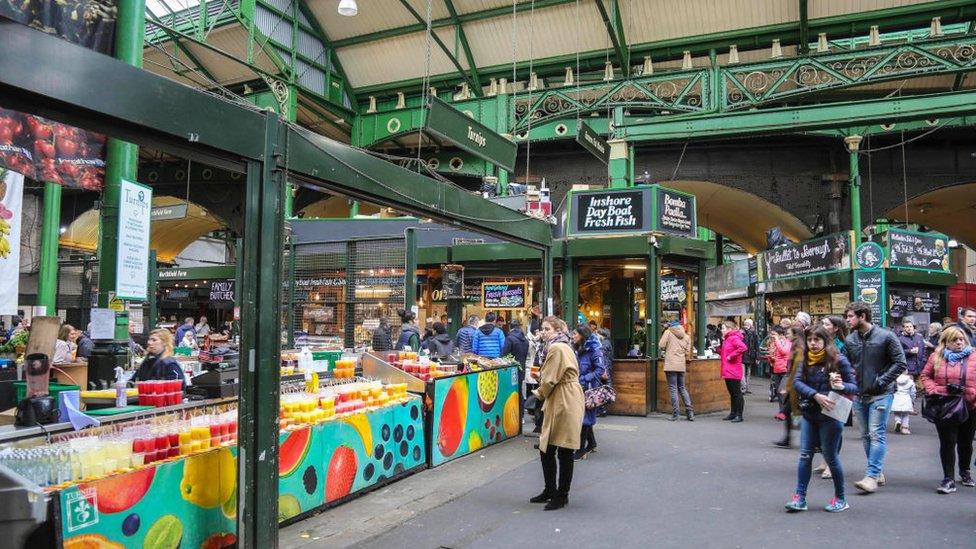
The university catering service's chef went to Borough Market in London for inspiration for the plant-based menu
The catering service's chefs were given vegan cookery classes and cafe managers were given training in sustainability.
Vegetarian options were also increased and unsustainable fish was removed.
The university also listed the vegetarian and vegan options before the meat items and changed how food was labelled on their menus.
Catering manager Paula White said unlike most restaurants the university's eating places did not label food as vegetarian or vegan.
She said: "We just put what's in it. You use your eyes, your nose. If you look at something and think 'Wow, that looks good', you're not first of all thinking 'Is there beef in that?'"
Nick White, head of the catering service, said: "This has involved making sacrifices, but is has been absolutely the right thing to do.
"It's about making the right choice easy."
Can tech create a more planet friendly burger?
- Published10 September 2019
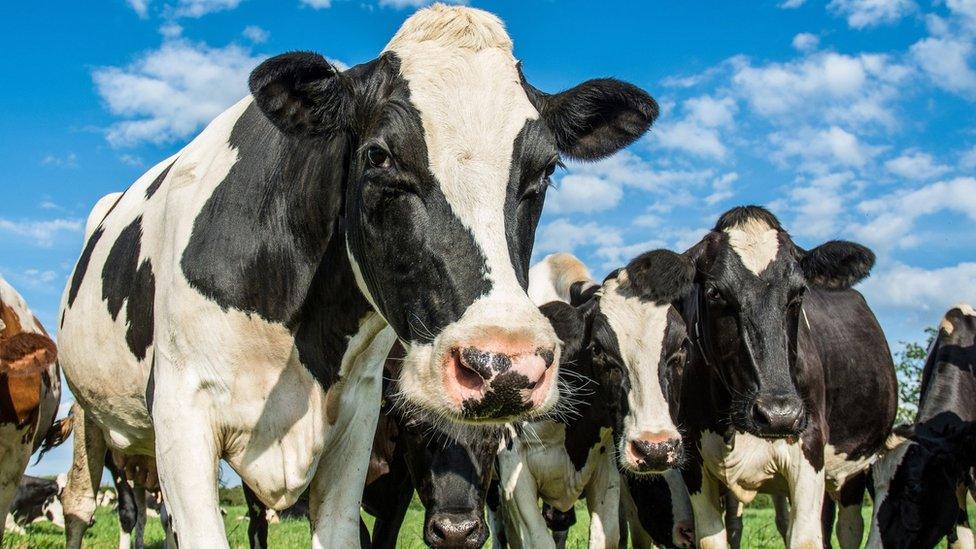
- Published12 August 2019
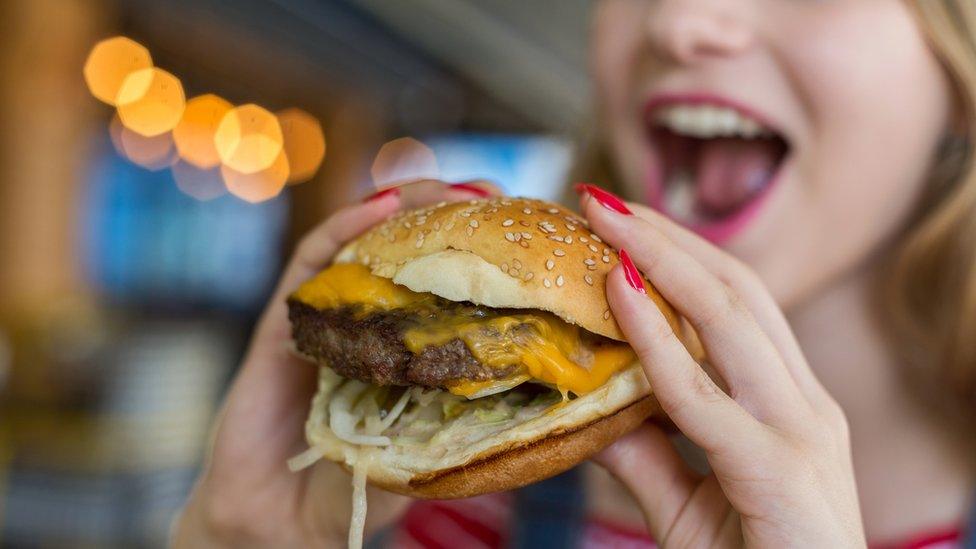
- Published17 January 2019

- Published15 November 2018
